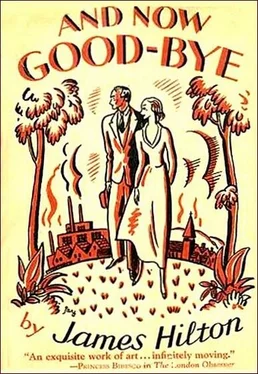“It was such an odd way of getting to know you,” she went on. “I’d imagined all sorts of ways, but none in the least like that. Yes, I had imagined all sorts of ways. As a matter of fact, I’d been really wanting to know you ever since I heard you give an address on William Blake—two years ago, it must have been. Usually I hate literary talks, they’re so artificial, and gushing, and speakers always quote the tags that you privately don’t think much of—but you were different. You were rather queer, in a way. You talked totally above the heads of everybody in the audience (totally above my head, anyhow), and you went rambling on and on, about all sorts of things that had nothing to do with the subject—and yet somehow, in the end, I did get a vague idea of what you were driving at. Anyhow, I didn’t come away feeling bored.”
“So that was why, when you wanted to learn German—”
“Yes, precisely. I knew you knew the language, because I’ve seen you getting German books out of the library. But my parents didn’t at all approve. To begin with, they couldn’t see why I wanted to learn German at all, and then they said that since I never attended the chapel it was a piece of impudence for me to ask you.”
“Oh, no, no, that never occurred to me.” He paused a moment and then said: “By the way, as a mere matter of curiosity, why have you never attended the chapel?”
“Do you really want me to tell you?”
“Yes, very much.”
She seemed to be having to arrange her thoughts. At length she replied: “I used to go regularly when I was younger. I was made to. It was the Silk Street chapel then, till my father had some kind of row with the minister there and decided to change to yours. I was seventeen and came to the conclusion that if he could please himself about which chapel he attended I ought to be able to please myself whether I attended one at all. There was a fuss about it at home, of course, but after all, at seventeen one can’t exactly be dragged screaming along the aisle. And. I did go once or twice, just to sample it.”
“And you didn’t like it?”
“Not a very great deal. I never heard you preach, if that’s any personal consolation.”
“I’m afraid it isn’t. What I really want to find out is your reason for disliking chapel itself.”
“Well, to begin with, the building’s not very attractive, is it? I wouldn’t mind if it were downright ugly, like a factory, but it’s got all those extra things on it—I don’t know how to describe them—but it looks as if it had been built in a straightforward way by a builder and then someone had gone round sticking architecture on afterwards. Perhaps that’s rather a vague criticism. As a matter of fact it reminds me too much of Gounod’s music.”
“You don’t like Gounod?”
“No.”
“Neither do I, particularly. And I quite agree with all that you say about the chapel building; it’s the product of a period when taste in architecture was at its lowest. Still, that alone oughtn’t to keep anyone outside.”
“Oh no, it wouldn’t keep me, either, if I liked everything else. But I suppose I don’t.”
“Tell me, if you can, some of the other things that you don’t like.”
“Well, there’s the organ, and the way the organist plays it, and the hymns—such stupid words, very often, which people sing without meaning them—’False and full of sin I am’, for instance—do you think anyone in your chapel really thinks he’s false and full of sin? I’m quite sure my father doesn’t. Nor do the rest, either—they’re far too proud of being respectable middle- class people ever to have such a thought…And the tunes are sometimes rather dreadful, too.”
“I’ll even agree with you in most of all that. I did try years ago to improve the music, but it led to trouble with the organist and choirmaster; they said I was interfering outside my province. Probably I was. It isn’t an easy job, you know, being a parson.”
“I’m sure it isn’t. That’s why I said just now I was sorry for you—you must find so many things that seem all wrong.”
“Most of us have that experience, don’t we? But tell me now, apart from the building and the music, which we both agree are far from perfect, what is it that you really dislike? I’m certain it can’t be entirely a matter of externals.”
“It isn’t, but it’s rather difficult to answer without being impolite.”
“Oh, I shan’t be offended—I asked for it, and anyhow, I really do want to know.”
She replied, musingly and with evident care: “I think it’s probably that I don’t feel sympathy with the spirit of the place. It all seems rather bleak to me, and it doesn’t seem to have much room for art and beauty—in a way, I feel it almost distrusts that sort of thing. I know I can’t prove what I’m saying—I’m only telling you just how things appear to me. And the revivals you sometimes have—they’re a bit hysterical—and I’m not built to like that sort of business. And then the preaching—I don’t care much for the system that encourages practically anybody to preach. I can’t feel interested, somehow, in what all kinds of people tell me, out of their own heads, so to speak, about religion.”
“There, of course, you attack the whole foundation of Nonconformity—perhaps even of Protestantism altogether.”
“Do I? I’m not really trying to attack anything—I’m only describing a few rather shadowy feelings I have.”
“Quite. I see that.” On any other occasion he would have felt immensely worried and perturbed and would have been bursting with eloquent confutations and counter-arguments; but with her, rather oddly, he felt no inclination to do anything but just go on talking quietly and discovering her opinions on one thing after another. It was queer how comfortable he felt, and how pleasantly in sympathy with her, even all the time that she was undermining, in a few calm sentences, the whole fabric of his professional existence; the truth was that beyond and surpassing any disagreement with her ideas was an extraordinary interest in them that had taken possession of him.
The waiter here provided a second interruption by removing the soup- plates and bringing a large Sole Colbert on a dish; it looked so enormous, even when divided, that they broke off their religious argument to discuss the more urgent if less exalted matter of appetite. “I’m astonished to find how hungry I am,” he declared, zestfully. “I never fed equal to this sort of thing at home. It must be the change of air.”
“More likely the good cooking,” she answered, and then, perceiving the implication of her remark, flushed slightly. “Really, I’m saying the most dreadful things; I don’t know why it is; I just seem to find myself speaking to you exactly as I feel—anything that comes into my head…But I think it’s true, though, about the cooking. Once, when I came to your house for a German lesson, you were out, and the maid had me in the kitchen talking to her. She was alone there, cooking your dinner, I suppose, and ever since watching her that morning, I’ve had an extra reason for being sorry for you.”
He laughed. “I never trouble about food when I’m at home. I don’t think I’m really very interested in it. Of course, it’s different to-night, but then, to-night…”
The waiter approached with the wine-list, and Howat, after a moment’s hesitation, passed it across the table to her. “Will you choose something you like?” he asked, doubtfully.
She also was doubtful. “I’m afraid I’m very ignorant about drinks. I’d rather you ask for something you would like.”
“Something I’d like?” He was about to disclaim any desire for non-teetotal drink of any kind when suddenly an impulse seized him and he began talking, almost to himself: “I remember something I once had—I was in Germany, on a holiday, as a youth—it was some kind of beer, I think—ah, here’s the list—I wonder if I shall call to mind the name…” He glanced down the column and felt a slight stirring of memory. “Ah, Pilsener, Pilsener—that was it. Yes, I think I’d like to drink it again, after all these years. But what about you? Won’t you have wine?”
Читать дальше











